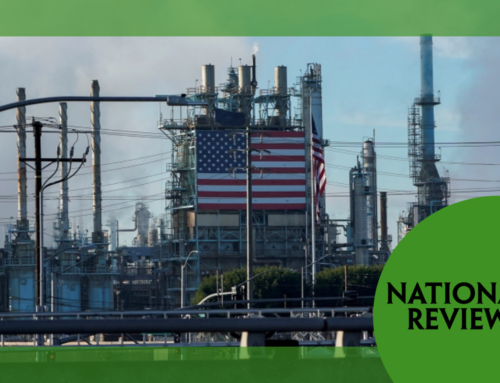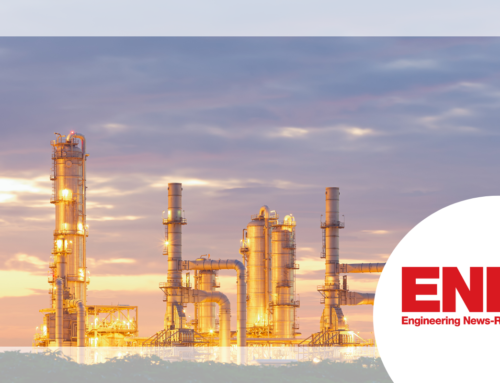Source: S&P Global Platts
By: Janet McGurty
New York — Meridian Energy received the final go-ahead to start building a refinery in the heart of the Bakken Shale, after the North Dakota Supreme Court in late June upheld the decision of a lower court that validated the initial construction permit.
In early 2016, the company submitted an application with North Dakota regulators to build what it argued was a more environmentally friendly refinery in the heart of the shale play. Expectations were for the facility to be up and running by 2018.
Protests, lawsuits and other legal hurdles delayed the project
And with its final construction permit in hand, Meridian began the next step – securing project financing. And then came the coronavirus pandemic.
“The coronavirus has really knocked the energy industry for a loop. What’s happened is our investment bankers went into the market for the project financing starting in March. Perfect timing, right? ” said Bill Prentice, CEO of Meridian Energy.
Coronavirus – blessing and curse
The pandemic and its energy industry fallout has made obtaining financing difficult for many companies, including Meridian.
Large institutions that would have jumped on this opportunity right away previously are taking a more timid approach now, Prentice said, adding that in today’s environment even companies which could finance projects on their own are seeking partners, further delaying the financing process.
“I would say the coronavirus cost us six months on project financing,” he added.
The project financing was stymied in part by the delay in getting the final court decision, which if it had not upheld the prior construction permit, would have forced engineering changes.
Permit approvals along with financing have delayed the anticipated startup yet again.
“I would say the new startup date is near the end of 2023. If we are lucky, we will be in full operation by the end of 2023,” he said.
“We have to be realistic though and keep the usual caveats in there about weather in North Dakota. It could be as late as first-quarter 2024,” he added.
However, the pandemic has offered a silver lining for Meridian and its place in the regional market, as refiners evaluate existing assets in the face of falling demand.
“Old inefficient refineries are going to go away. The refinery in Wyoming was shut down. We are going to lose other assets up in that area. So everything that is going to benefit us has started to accelerate,” he said, referring to HollyFrontier’s decision to shut its Cheyenne, Wyoming, refinery for a repurposing to make renewable fuels.
North Dakota’s original refinery – the 71,000 b/d Mandan facility now owned by Marathon Petroleum – is said to be on the sales block, but a company representative invoked company policy on commenting on “rumors or speculation.”
Another thing in Meridian’s favor as it looks for financing it is its adherence to The Equator Principles.
This is a risk management framework used by lenders to evaluate if the project meets the criteria for assessing and managing environmental risk. There are 105 Equator Principles Financial Institutions across the globe which depend on the Equator Principles for lending guidance in a world where ESG and environmental and social standards are becoming increasingly more important for shareholders and investors.
“It took us months to make sure we were absolutely in compliance with The Equator Principles. It was like getting a new permit,” Prentice said.
But it has paid off.
“We are the only major energy financing in the market right now,” said Prentice, which expects Meridian to receive its first financing proposal in mid-July.
“Capital markets are just plain nervous. Election year coming up. But our degree of confidence is very high. And our investment bankers are working out fine,” he added.
The finished product
Meridian’s plant design has had many permutations in the years since it was first pitched.
However, one thing that has not changed is its permit which allows it to operate as a minor source of emissions – unheard of for a refinery which are issued Title V permits – and the fact that will be designed to run Bakken crude.
The refinery will run 49,500 b/d of Bakken crude when it is up and running.
Meridian already has in place a long-term contract supply with a major integrated Bakken producer, Prentice said, adding that confidentiality agreements precluded him from naming the company.
“Pricing will be a set of mutually agreeable industry indices on daily basis,” he added, and at a discount to WTI.
Not all barrels provided will be equity barrels. Pricing from agencies like S&P Global Platts, where three daily Bakken prices from different locations are assessed, will be used to determine the pricing.
The recent court order ordering Energy Transfer shut down the 570,000 b/d Dakota Express Pipe Line (DAPL) will be a boon to Meridian.
“Regarding our crude situation — it benefits Meridian as we provide an in-basin solution and source all of our crude from the Bakken — you now have more crude that was already struggling to find a home that can’t get out of the basin, with the industry going to have to rely more on rail at much higher transportation costs,” said Prentice.
Bakken trade ex-Williston slowed and prices dropped dramatically in relation to other Bakken crude assessments after the July 6 court order.
On July 9, Bakken ex-Williston (DAPL) was heard offered at the NYMEX light sweet crude futures contract calendar month average (WTI CMA) minus $6.25/b with bids at at WTI CMA minus $5.60/b, according to Platts data.







Leave A Comment